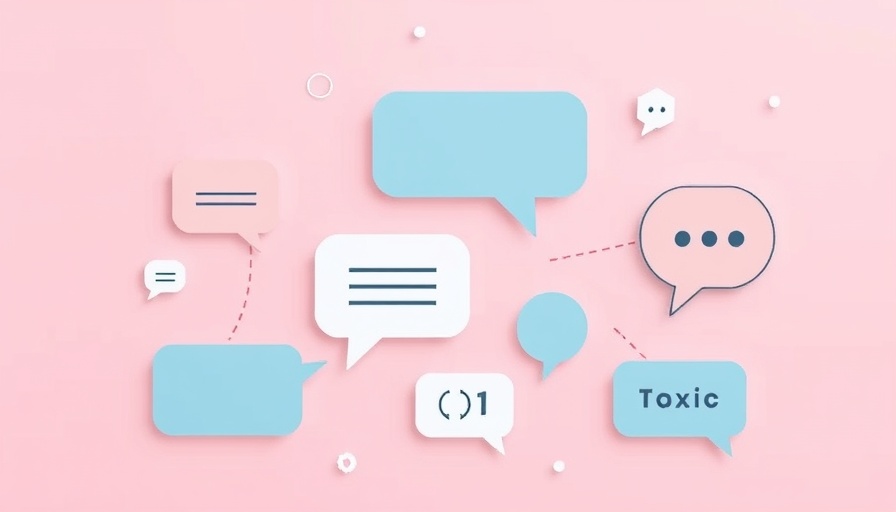
Understanding the Rise of AI in Moderating Toxic Speech
As social media platforms grapple with the resurgence of toxic speech, the role of artificial intelligence (AI) in moderating content has emerged as a crucial solution. Platforms like Facebook and X (formerly Twitter) have recently made headlines for loosening their content moderation policies, increasing the visibility of harmful speech. In this volatile landscape, AI offers the promise of efficient and scalable content monitoring, relieving human moderators from the burden of constant exposure to unpleasant content.
Can Algorithms Achieve Fairness and Accuracy?
Maria De-Arteaga, an assistant professor at the University of Texas, points out that while AI can excel in detecting toxic speech, achieving fairness remains a significant hurdle. A highly accurate algorithm might still hold biases that favor certain demographic groups over others. For example, an AI might effectively flag hate speech directed toward one ethnic group while failing to identify similar speech directed toward another. This disparity raises critical questions: Can an AI be designed to balance these competing priorities effectively?
Innovating AI for Better Fairness
Recent research led by De-Arteaga explores this challenge by developing an algorithm that successfully balances fairness and accuracy. Their study analyzed a vast dataset comprising 114,000 social media posts labeled as 'toxic' and 'non-toxic' by earlier research. The findings were promising; the new model demonstrated an impressive 1.5% improvement in fairness compared to previous models, making strides toward a more equitable assessment of online content.
Group Accuracy Parity: A Step Towards Fairness Measurement
The team employed a measurement mechanism known as Group Accuracy Parity (GAP), which helps gauge the algorithm’s effectiveness across diverse groups. However, De-Arteaga notes that fairness is not a universal standard and varies by stakeholder. Therefore, different parties may need tailored approaches to fit their specific needs. For instance, communities may disagree on what constitutes toxic speech, further complicating the algorithm's design.
Future of AI in Content Moderation
The research provides valuable insights into how AI can evolve to improve online discourse. As technology continues to advance, it’s likely that AI will become increasingly adept at not only identifying toxic speech but doing so in a fair and context-sensitive manner. This could lead to healthier online conversations and help mitigate risks associated with misinformation and hate speech.
Potential Impact on Social Media Policies
The development of fair AI models could influence how social media platforms define and implement their content moderation policies. If successful, this could create a balance between maintaining free speech and curtailing harmful speech. As platforms face growing scrutiny over their moderation practices, advancements in AI may provide the tools needed to navigate these challenging waters.
In conclusion, as the conversation around online toxicity and algorithmic fairness continues, initiatives like those led by De-Arteaga could pave the way for a more equitable digital landscape, fostering a culture of respect and kindness in online interactions.
 Add Row
Add Row  Add
Add 




Write A Comment